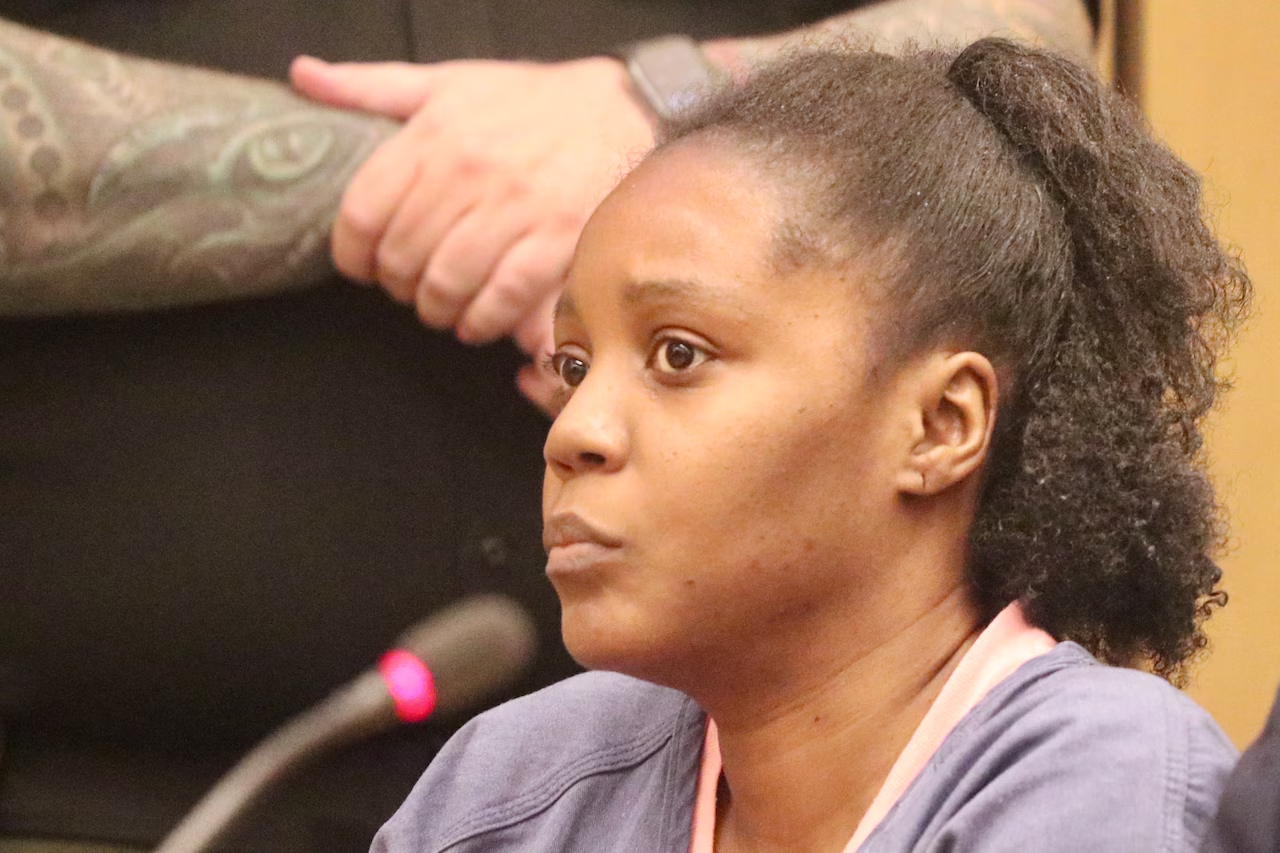A tragic 2019 shooting that tore apart a Portland family and ended the life of Portland State University athlete Deante Strickland reached its legal conclusion Wednesday with an unusual and complex sentence.
Six years after the Aug. 2, 2019 killing, prosecutors and defense attorneys agreed on one thing: there is still no clear motive that explains why Tamena Strickland, Deante’s older sister, opened fire on her own family.
Judge Finds Defendant “Guilty But Insane”
Multnomah County Circuit Judge Nan Waller ruled that Tamena Strickland, now 37, was guilty but insane of murder. The verdict places her under the lifetime jurisdiction of the Psychiatric Security Review Board, which will oversee her treatment and level of supervision for the rest of her life.
Also Read
But that was only part of Wednesday’s outcome.
What the “Split Sentence” Means
Judge Waller also imposed a 22-year prison sentence to run concurrently with Tamena’s psychiatric hospitalization. Known as a split sentence, this structure means:
-
Tamena will remain in a secure psychiatric facility for as long as doctors deem necessary.
-
If the Psychiatric Security Review Board later determines she no longer needs hospitalization, she will be transferred to prison to complete whatever portion of the 22 years remains.
With credit for time already served, the effective prison term is closer to 16 years.
Senior prosecutor Melissa Marrero explained that multiple medical evaluations concluded Tamena suffered from schizophrenia and delusional disorder at the time of the shooting.
The Day of the Shooting
According to prosecutors, the violence unfolded at the family’s home in Portland’s Cully neighborhood. Tamena shot her 22-year-old brother in the chest and also wounded her aunt and grandmother — both named Shirley Strickland.
“These were innocent victims. There was no reason for this to have happened,” Marrero told the crowded courtroom. “What happened has left a gaping hole in this family.”
Remembering Deante Strickland
Deante Strickland was known across Portland for his athletic talent and leadership. After rising to prominence at Central Catholic High School, he played basketball at Casper College in Wyoming before returning to Portland State. There, he excelled on both the basketball and football teams for the Vikings.
His mother, Teresa White, wore a shirt reading “StrickCity” as she spoke through tears about a son whose presence is still visible on the PSU campus.
“They still put my son up on billboards,” she said. “That light still shines.”
Family members also described the long-term trauma experienced by the surviving victims. The younger Shirley, who was pregnant when she was shot, continues to cope with the emotional and physical aftermath. The elder Shirley, they said, was never the same after the attack and passed away four years later.
A Family’s Pain and a Community’s Loss
Deante’s aunt Edee Johnson said she grew up so close to Deante that he felt more like a brother than a nephew. She remembered his natural ability to inspire loyalty, recalling a day when he convinced most of his PSU teammates to visit her home for haircuts.
“If Strick does it, we’ll do it,” she remembered the young men saying. “He had so much influence, he probably didn’t even realize it.”
Defense: Remorse Obscured by Medication
Defense attorney Robert Crow told the court that Tamena does feel remorse, even though her medication suppresses her emotional expression. Throughout the proceeding, Tamena remained quiet. When Judge Waller asked whether she had questions about the sentence, she softly responded with a single word: “No.”
The case leaves behind a family still grieving the loss of a gifted young athlete and still struggling to understand the unthinkable tragedy that happened in their home.












